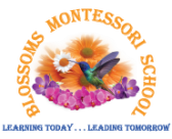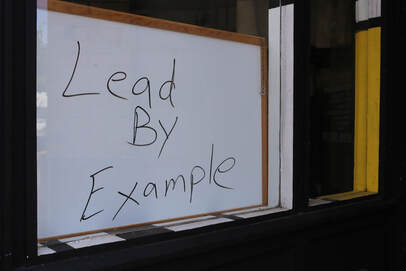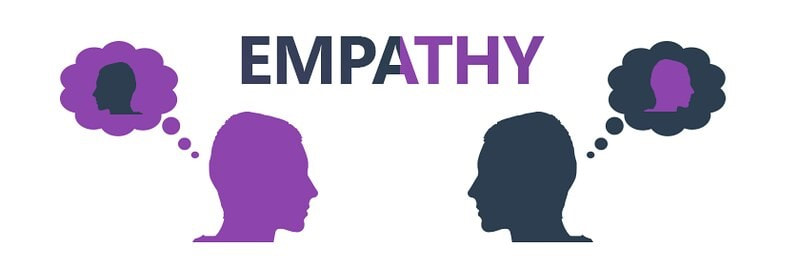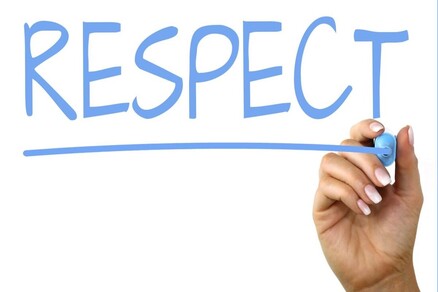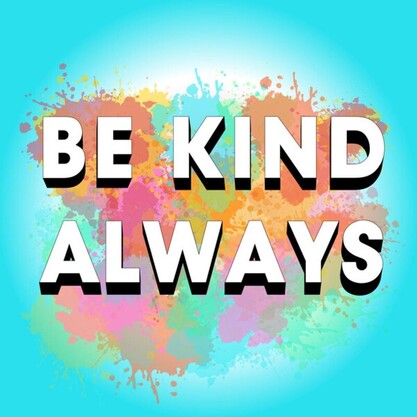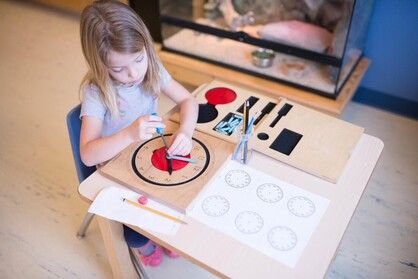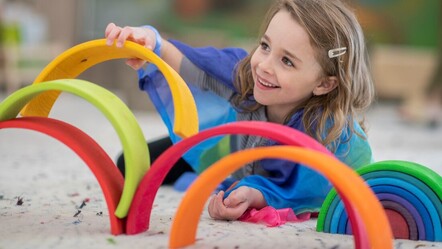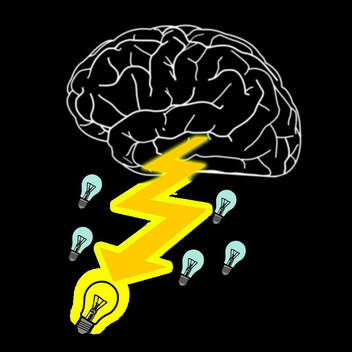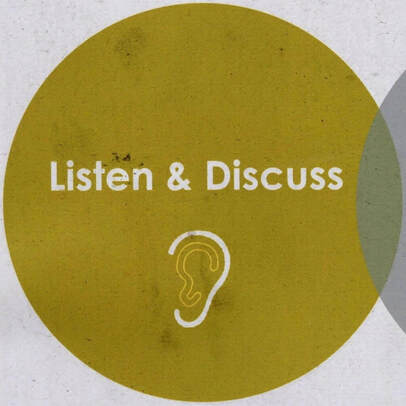|
One of the most important human characteristics is empathy. Empathy is one great gift you can give to your children. If you are considering getting your child admitted into a Montessori preschool, you should look for the one working on building empathy in the children. There are many ways to build empathy, and one must need to know these methods if they want children to learn empathy as well. A Montessori daycare needs to work on the following things if they want to develop empathetic nature in the children. 1.Lead with Example Children learn the best through modeling. If you want to teach your children empathy, you need to make them see that you are empathetic yourself. Try to set a good example for the children of Montessori. Treat them with kindness if they make any mistakes. Be thoughtful about their problems. 2.Prioritize Empathy Keep empathy at the top of your priority list. According to some studies, a strong focus on a child's happiness does not always guarantee a happy child. The real secret to happiness is to make your children care about the people around them. Teach your children to be kind to all the living things around them. Prioritize empathy over any other form of happiness. 3.Apologize if Necessary In a Montessori daycare, teaching children the real meaning of compassion and understanding is of paramount importance. You can become the role model which you want your children to follow. Nobody's perfect, and there are times when many of us lack empathy; you can just accept your fault and be the first one to apologize. Talk to your children about other less-accepted human emotions like jealousy, anger, and frustration. In the end, we are all human and need safe spaces. 4.Respect Being respectful is probably the best gift you could give to anyone. Never miss a chance to show the kids that you can respect even the people who do not play a significant role in your life, like a barista or a store clerk. 5.Be Kind One of the best things taught in Montessori is to "be kind to everyone". Kindness wouldn't cost you anything, but it will definitely give you a better outlook. Moreover, children model what they see, and kindness is the best thing they can imitate from their elders. Teach them to be kind to everyone around them, from relatives and pets to stray animals and even the waiters.
These are some of the ways to develop an empathetic child in Montessori childcare.
0 Comments
Children learn the best when they are given hands-on experiences for learning. It is almost impossible to forget the things which you have learned from the hands-on experiences such as sewing or even auto-mechanics. Hands-on learning is not limited to cooking, painting, or sewing, in fact you can make any subject hands-on learning experience. If you are looking for a daycare or a Montessori for your child, you need to find the one where hands-on learning is the priority so your child can have the best learning experience. Experiential and Hands-On Learning Hands-on learning is also known as Experiential Learning, and the name is self-explanatory. Many daycares and preschools are using hands-on learning or experiential learning to help children learn better and faster. Aristotle laid emphasis on Experiential Learning when he said, "for the things we have to learn before we can do them, we learn by doing them." It is also found that if a child uses their hands to discover, their learning becomes more meaningful to them. The concepts acquired from hands-on learning are deeply rooted in a child's brain than any other rote learning ever could be. They are active participants in this learning process, and they not only enjoy themselves but also learn better. Hands-on Learning and Practical Approach The kinesthetic part of learning is the most important aspect of hands-on learning, and it has been known to be the most popular form of learning among students as well as instructors. Students learn from their trial and error methods, and they learn the difference between theory and practical approaches. Instructors also have an opportunity to engage with their students and try the unique way of learning along with the students. Benefits of Hands-On Learning
There are multiple benefits of hands-on learning as it engages different brain areas and improves coordination in children. It also builds the fine motor skills of children. The child is going to learn by using all of the five senses, which make the learning useful and interactive for the child. Hands-On Learning in Montessori Preschools Today, parents are more concerned about their children’s learning and how they will learn. Many preschools that follow Maria Montessori's methods are working on hands-on learning. They try to help the child learn about his surroundings with the help of a practical learning experience. If you are a parent looking for a children’s daycare, it is recommended to always look for the one using the hands-on learning methods. A Montessori daycare that focuses on teaching problem-solving skills to children is considered the best possible Montessori for your child. It is important that your child learns about problem-solving skills during his time in Montessori. There are certain steps that can be taken to teach children problem-solving skills. A child will turn into an independent and useful member of society by acquiring these useful problem-solving skills. Here are a few techniques that are used in Montessori childcare to promote problem-solving in kids. Brainstorm A child has an inquisitive mind, and he is going to ask you dozens of questions in a day. You need to give the answer in a way that is not completely straightforward. This will help your child to brainstorm about his own question, and he might get the answer while thinking about it. Self-Correction We learn the best from our mistakes. If you look back at your past, you will see that you don't forget the lessons learned from your mistakes. Try this approach with your children as well. Ask them to learn by themselves. Trial and error learning is probably one of the best techniques to teach your child self-correction and problem-solving. Autonomy Another technique widely used and appreciated in a Montessori preschool is letting the child be independent. Freedom in limits and a little independence given to your child go a long way in making your child good at problem-solving. You should not always offer immediate help to your toddler when taking a difficult step as it can be a learning curve, and it can improve their problem-solving habits on their own. Discuss Just like adults, discussions also make the child learn better. Try to discuss the things your children ask from you. You can ask the child open-ended questions so he can think more about the question he has asked. Children's developing mind needs more thinking and brainstorming exercises than any other age group. Promote healthy discussions at your home or a Montessori daycare.
Puzzles It may sound a little clichéd, but giving your child puzzle can actually improve their problem-solving skills. You don't have to give them complicated puzzles; you can just give them puzzles with only two pieces. These were some of the techniques usually used in a Montessori daycare to promote problem-solving skills in kids, and you can also use these in your house. |
Blogs
Author
As a highly experienced Montessori educator with a coveted AMI credential from Association Montessori International, I have spent over 22 years helping children discover their full potential through an individualized approach to learning. Along the way, I have mentored and coached countless educators, equipping them with the tools and techniques to foster growth in their own students. In fact, I have trained over 65 teachers to date. Currently serving as a Director, I bring a wealth of knowledge and expertise to every aspect of my work. Whether you are a parent seeking the best educational opportunities for your child or an educator looking to improve your own practice, I am confident that I can help you unlock your full potential. Archives
June 2024
|
Contact Us
|
|
| Child Care Learning Center | Daycare Center |
Blossoms Montessori School All Rights Reserved.
